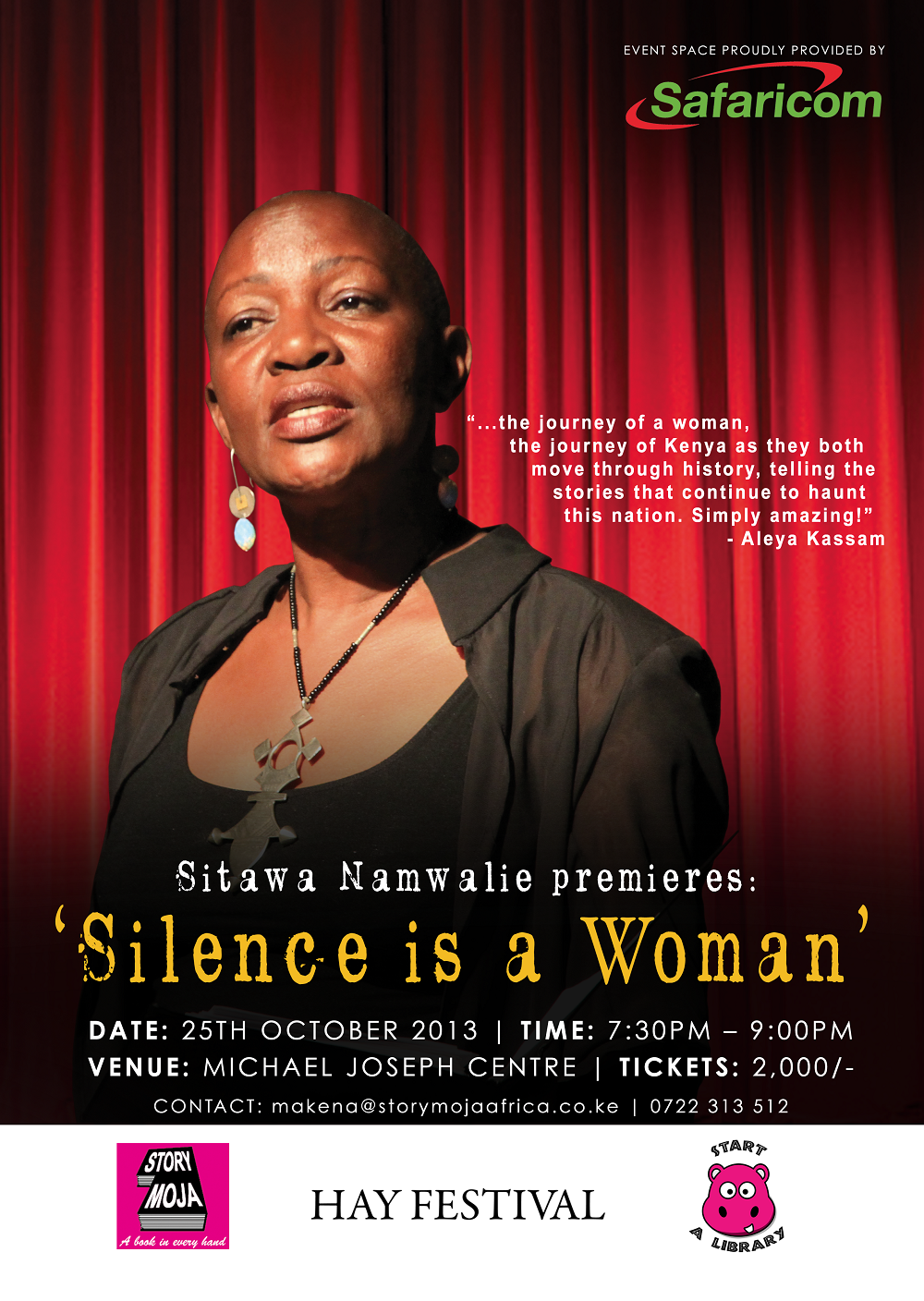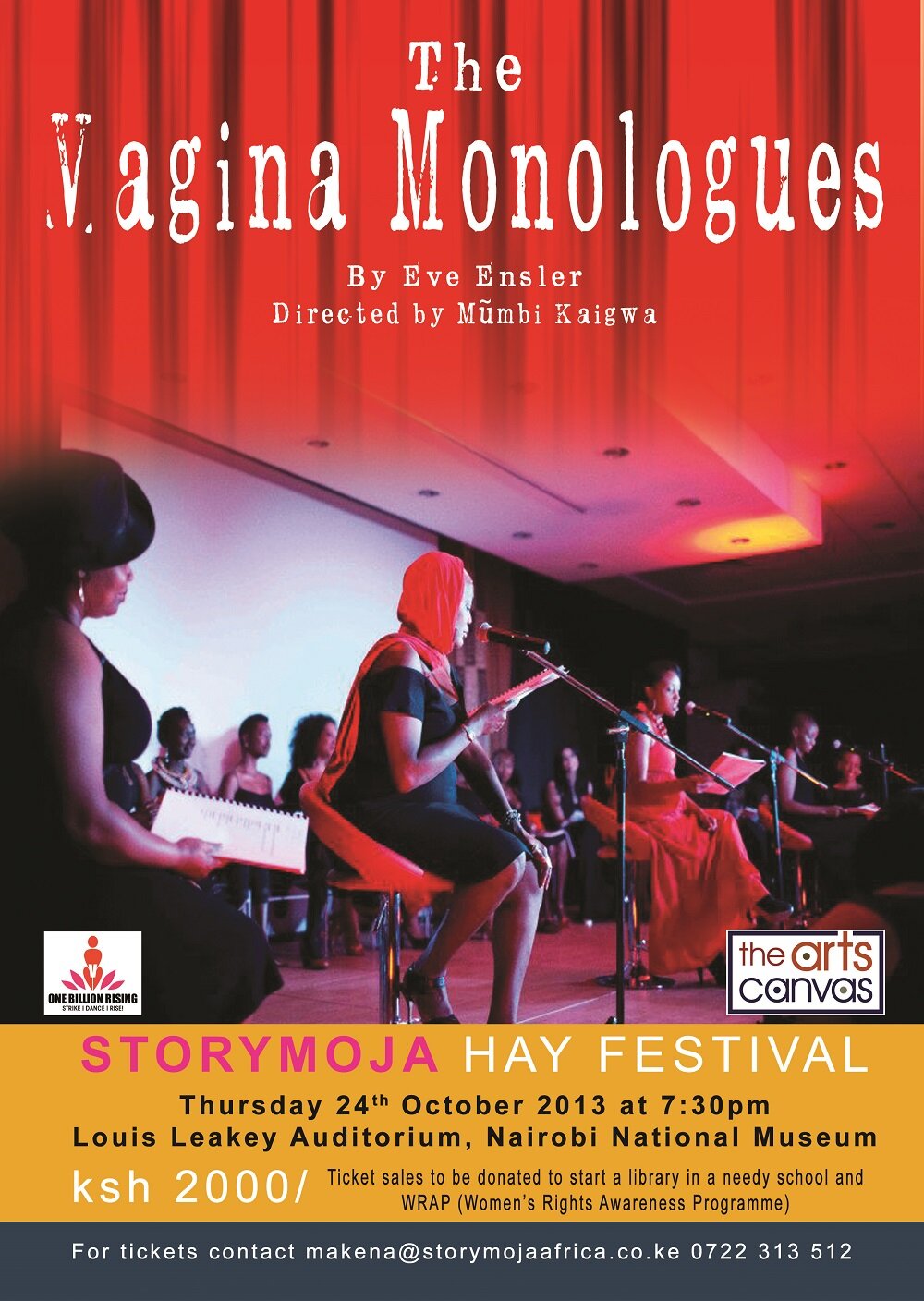Real Life Events Inspire Fiction: Richard Crompton & Kinyanjui Kombani at Storymoja Mini Fest
Written by Nkatha Obungu
“Good fiction doesn’t claim to mirror reality at all. It indicts reality by providing a paradigm of shape and order and justice—the way we all know things should be—without suggesting that’s how things really are. Good fiction is the mirage that declares itself a mirage, yet compels us to faith through its beauty. Good fiction is the dream that’s too good to be true, so perfect and symmetrical that it gives itself away every time. But it doesn’t trick you into suspending your disbelief by trying to look anything like reality. Good fiction makes you acutely, painfully aware of your disbelief, and makes you believe anyway. And when it’s done well—when it’s done right—good fiction is more real than reality.” – P.S. BABER
There are books you read and get lost in. Books with carefully strung words that burrow underneath your skin and transmogrify your body into a time travelling vessel. There are books that will spin your womb and loins into your ancestry, into people who spoke guttural terrifying tongues and hacked at each other like they fell trees. Books that hurtle you forward into the future and into imagined realities that are at once frightening and exciting. A quote by Dr. Suess which almost reads like the preface to a bibliophile manifesto on the internet goes: “The more that you read, the more things you will know. The more that you learn, the more places you’ll go.” Fiction is the attic window you use to slip out into the night and discover portals to otherworldliness. In this way, we find escapism in fiction as a form of literature.
But what happens when fiction is a reflection of reality? Is fiction still serving its purpose when it holds up a mirror to ourselves? When instead of transporting us to other worlds, it transports others to the corners of our own tragedies, victories and everything in between? Chandler argues that fiction, in whatever form, has always been intended to be realistic. The fact that a story may seem strange or even fantastic to us is not necessarily a signifier that it does not mirror the lived experiences of another person. More recently, Teju Cole talked of the responsibility of the writer to reflect his realities; the need to write how we experience what is around us and channel what this turns us into. And this is exactly what authors, Richard Crompton and Kinyanjui Kombani, the guest panelists at the “Real Life Events Inspire Fiction” session at the Storymoja Mini Hay festival, have done.
Both these authors have written books mired in difficult yet critical periods of Kenyan history. Kombani’s book ,”The Last Villains of Molo” is framed within the context of the 1992 Molo Clashes in Burnt Forest, while Crompton’s book, “The Honey Guide” is a detective story set within the 2007/08 Post Election Violence that rocked Kenya. So, why fiction? Why not a non-fictionalized account of these events dealing with hard facts? Well, according to Richard Crompton, fiction tells us a greater truth, perhaps because it liberates us from the stereotypes and tropes that permeate other forms of writing. Journalism, he reminds us, is a form of fiction; a constraining form he practiced for 15 years and which left him thirsting to portray the greater truth of Nairobi. A truth that did not involve a white savior swooping in to deliver Kenyans from their realities, but one that sought to present Kenyan people exercising their agency to come up with solutions to the issues they grappled with.
Kombani, in highlighting the experiences of the victims who intimately experienced loss, tragedy and despair in the 1992 Molo clashes, was interested in the stories behind the statistics. This came from the realization that other than those who can taste death and suffering in their mouths whenever the subject is discussed, very few people know what really happened. He expressed his frustration at the forgetting-ness of society; how certain events in history are swept under the carpet and not talked about. How we can claim to move on while some of us are still unable to sleep with the lights off because it reminds them of turning Napier grass into hiding places.
According to the authors, we are living in times that almost mirror a Dickensian reality; Life is increasingly precarious and on the edge. The fact that we are living in a country where the president and his deputy are accused of mass murder and rape; where a governor slapped a women’s representative in front of cameras, where senators leave scandal in the wake of their every footstep… it all reads like a De Lillo novel. And even then, if one were to chronicle all these events in fiction, the story would give the appearance that they were too contrived to be credible. Fiction seeks to make sense of a reality that is at once baffling and surreal; ordering events that appear too coincidental and random to be true. In this way, fiction, gives meaning to what we are unable or afraid of ascribing meaning to and as a fiction writer one may be required to be ruthless in order to structure the chaos of reality.
However, do writers have the right to tell stories about other people’s lived experiences? When does creative license stop being so and cross into the realm of appropriation? Having given this a bit of thought since once being confronted with the question, Richard Crompton opined that the role of a writer is to tell a story the way you see it. This does not always mean you will get it right; whether you have or not is for the reader to judge. Kombani, on the other hand, has been criticized various times by members of his own community for presenting a balanced picture of the clashes. However, in his view, it was not for him to indict or acquit anyone in his book. The general consensus seemed to be that we must tell the stories we feel we have in us; whether we succeed in telling those stories correctly is another matter entirely and one that is subjective. The authors also agree that success in fictionalizing reality comes when the reader is uncertain as to where fiction begins and reality ends.
Coincidentally, both authors deal with the theme of police brutality in their next books; another hot-button issue that many would rather not talk about. If you have read “The Honey Guide” and “The Last Villains of Molo”, then you know you are in for a treat. We can’t wait.




